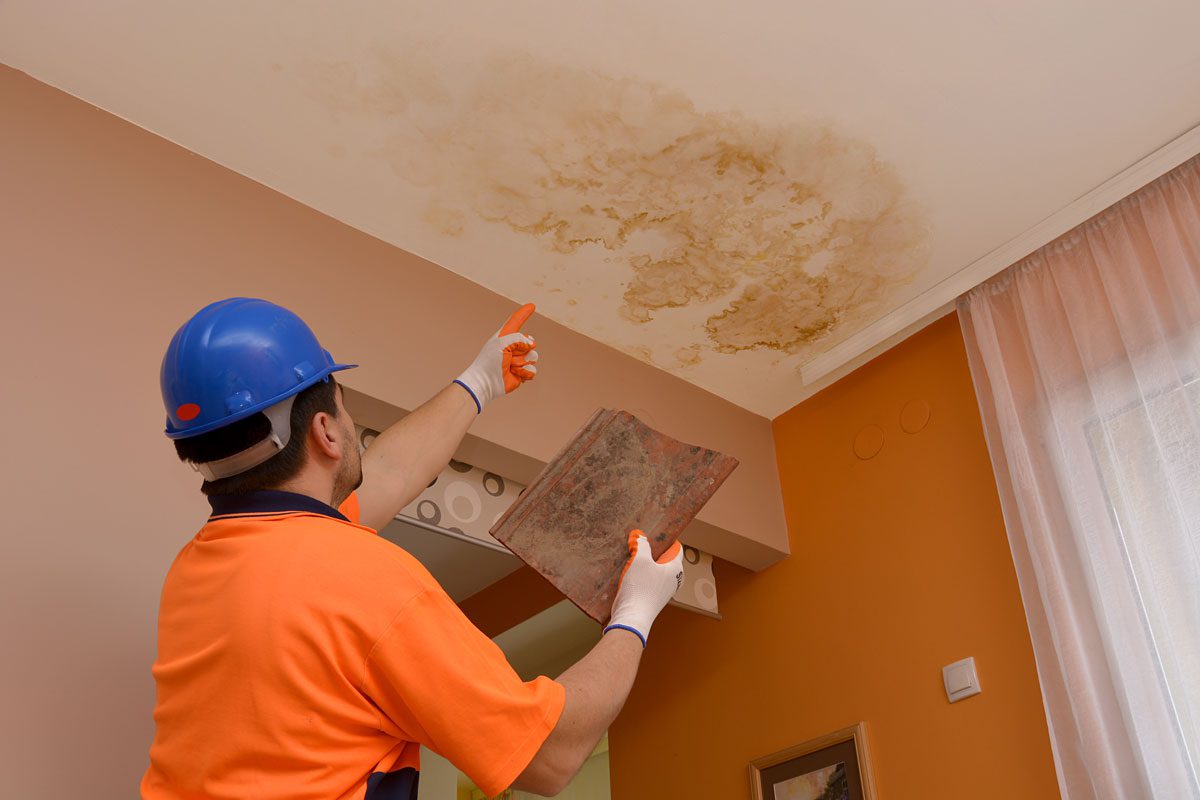The Water Tank Was Leaking And Our Tenants Never Told Us’ – Am I Covered?
Caeva O'Callaghan | September 18th, 2023

Landlords need to cover all bases when they invite tenants into their properties. If a water leak affects the property you let out, your insurance may cover it. Find out more inside.
If your tenant never told you that your water tank is leaking, it’s unlikely you’ll be covered. This is because water damage claims must be sudden and unforeseen.
Gradual water leaks are not covered by home insurance. This is because either they’re caused by normal wear and tear, or could have been avoided with routine maintenance. It really depends on the story around the claim.
In this article, we’ll answer questions like:
- Am I covered if there’s a water leak in the property I let?
- Does landlord’s insurance cover water damage?
- What if my tenants damage my property?
Dealing with other people renting your property isn’t always smooth sailing. If your tenants haven’t noticed an escalating problem, like a leaking water tank, read on to find out if you’ll be covered.
Landlord insurance – what it covers
If you rent out your property as a landlord, you should have landlord insurance. This will include buildings insurance, which protects the structure of your property against damage from hazards like fire or floods.
It is also likely to include contents insurance. This will protect any furniture and non-permanent fitting you’ve provided, as in a furnished flat.
You can add optional extras onto your landlord insurance like key protection, loss of rent insurance, legal expenses insurance and home emergency cover. These features won’t come as standard with every policy, but providers usually offer them as extras.
So if a water leak is bad enough to damage your property, whether you’ll be covered depends on how it happened.
Water damage – what to expect
Having a major leak in your home will cause significant problems. Depending on how long the leak has been going on, your tenants should have noticed something was wrong.
No hot water, boiler issues and temperamental radiators are all signs that something might be up with the pipes. A more obvious symptom would be large pools of water in the kitchen or bathroom, or dark stains spreading across the ceiling. Your tenants should give you a call as soon as they notice something was wrong.
But if your tenants left the property unoccupied for a while, or you weren’t on the best terms, the leak may have been happening a lot longer. If you let a flat on the first or higher floors, this could spell disaster for the properties underneath.
You’ll need your insurance if you have to pay for ruined flooring, bubbling paint, peeling wallpaper, cracks in the ceiling, or electrical wiring. This is on top of any dehumidifiers or other specialist equipment you may need.
Is my tenant at fault?
It all depends on the cause of the leak. Your insurance provider will send out a loss adjuster to investigate what happened. They’ll get everyone’s side of the story, and work out who needs to pay what.
For instance, if your tenant left the taps on by accident, your insurance will cover it. This is because insurance providers allow for the fact that everyone’s human, and accidents happen.
But if it turns out that you, the landlord, needed to repair the pipes and you ignored it, you’d be at fault. As a landlord you are responsible for keeping your property safe.
And if there was a gradual leak and your tenants never told you, you will not be covered. As a landlord, you should have been checking things and not relying on your tenants to maintain your property for you.
So, if you don’t keep up with general maintenance, your insurance won’t cover it if the worst happens. You may also have to pay for replacing or repairing your tenants’ damaged belongings.
If you suspect your tenant flooded the property on purpose or due to negligence, consider getting the Gardai involved. Take photographs of all the damage before you clean up, and obtain a crime reference number.
Water damage and other properties
The costs begin to rise if the water damage is serious enough to affect other properties. This can often happen in the case of flats. For example, if your tenants are on holiday and the water tank leaks, it could affect the flats below it.
If this happens, you may only know about the problem when someone else complains to their own landlord. You may have to involve their insurance, and work things out face to face. The other property’s landlord insurance should help to cover things, depending on how bad the damage is.
Bear in mind the Gardai can break in if a neighbour calls them first about a water leak. Actually, they are allowed to gain entry to a property under the Criminal Evidence Act on the grounds of ‘preventing serious damage’.
If you have any questions regarding landlord insurance pick up the phone and call us in QuoteMe.ie
If you are a landlord and you are unsure about the insurance you have on your properties or your premiums are up for renewal, fee free to contact us with any of your questions. We are home insurance experts. We know all the angles. We have seen all eventualities and types of claims. We will guide you accordingly and help you find landlord home insurance that suits your specific needs. We are available for direct phone calls between 8.30am and 5.30pm each weekday on 0818 224433 or 042 9359051.
You can also get a home insurance quote online on our website directly. We compare home insurance in the Irish market from 12 insurance providers to get you the right cover for your situation.